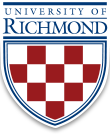
From the Directors
Can assessment transform our institutions, our communities, and ourselves…in ways we value?
Higher-education professionals often consider assessment a necessary evil—or, given assessment's focus on outcomes and metrics, sometimes just an evil, corrupting the intangible benefits of learning for learning's sake.
In civic-engagement work within higher education, assessment can seem more promising. Answering the question, does our work in the community matter? is critical to growing into the ideal of reciprocity that propels our community partnerships forward. Yet the assessment frameworks most familiar within higher education often seem inadequate to explore the complex, iterative learning and the cumulative impacts we are actually trying to measure, whether on campus or off.
In recent years, we at the Bonner Center for Civic Engagement (CCE) have been experimenting with an approach to assessment that bridges these gaps. The centerpiece of our efforts is a data lab in which stakeholders with a common investment in a program, center, class, or shared experience come together to look carefully at artifacts (data) that emerge from that common investment.
For example, in a recent data lab, faculty, CCE staff, and community organization staff—all of whose work has intersected in specific partnerships—gathered to look at the “stuff” visible from each of their perspectives, the evidence of what was emerging from the partnerships. The artifacts included reflective blog posts from college students about their mentoring experiences, participant evaluations filled out by mentees and collected by organization staff, and learning goals relevant to the program, drafted by the CCE.
Looking at these various artifacts together, we asked two simple questions: What are we learning from this data about the partnership? What else do we wish we knew but can’t infer from this data?
That second question is critical to the central goal of the data lab—namely, to build a culture of shared inquiry about the impact of our collective work. The questions that have emerged in this process have allowed us to refine our approaches to data collection and deepen our inquiry. The data lab, conducted two to three times a year with all CCE staff, is our go-to tool for feeding and sustaining a healthy assessment culture. It centers the real questions we—and not any external office, grant, or award—have about our work and its impact.
Recently, we have been contributing to a larger movement to "reimagine assessment." At the national Imagining America conference this fall, CCE Associate Director Sylvia Gale co-led, with an IA-supported research team and curricular-engagement scholar Patti Clayton, a preconference centered on exploring a values-engaged approach to assessment. They asked what assessment looks like when it is grounded in the values we hold central in community-engaged work.
Soon after, Sylvia and CCE Bonner Scholars Director Bryan Figura delivered a keynote titled “Reimagining and Reclaiming Assessment as a High-Impact Process” at the Bonner Foundation’s annual conference. We challenged our audience of engaged faculty and staff to imagine an assessment world in which we practice assessment in ways that help us build meaningful relationships, provide us with rich feedback, and allow us to reflect meaningfully on our students, our partnerships, and our communities.
Too often we have imagined assessment as a tool for self-justification. It is time we imagine it as a process that expands our capacity for honest conversations and enables us to hold ourselves to the highest values that drive community-engaged work. We at the CCE hope to build and live into this world through generative assessment that centers inquiry and collaboration.
Dr. Amy Howard, Executive Director
Dr. Sylvia Gale, Associate Director



